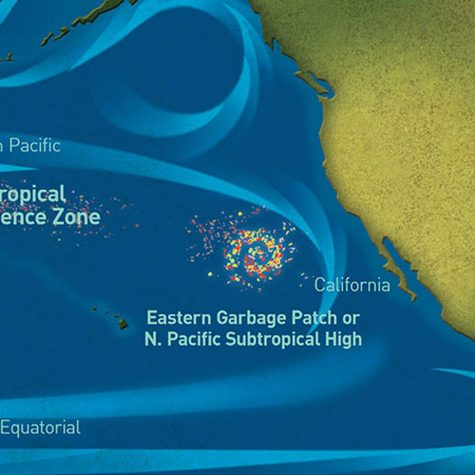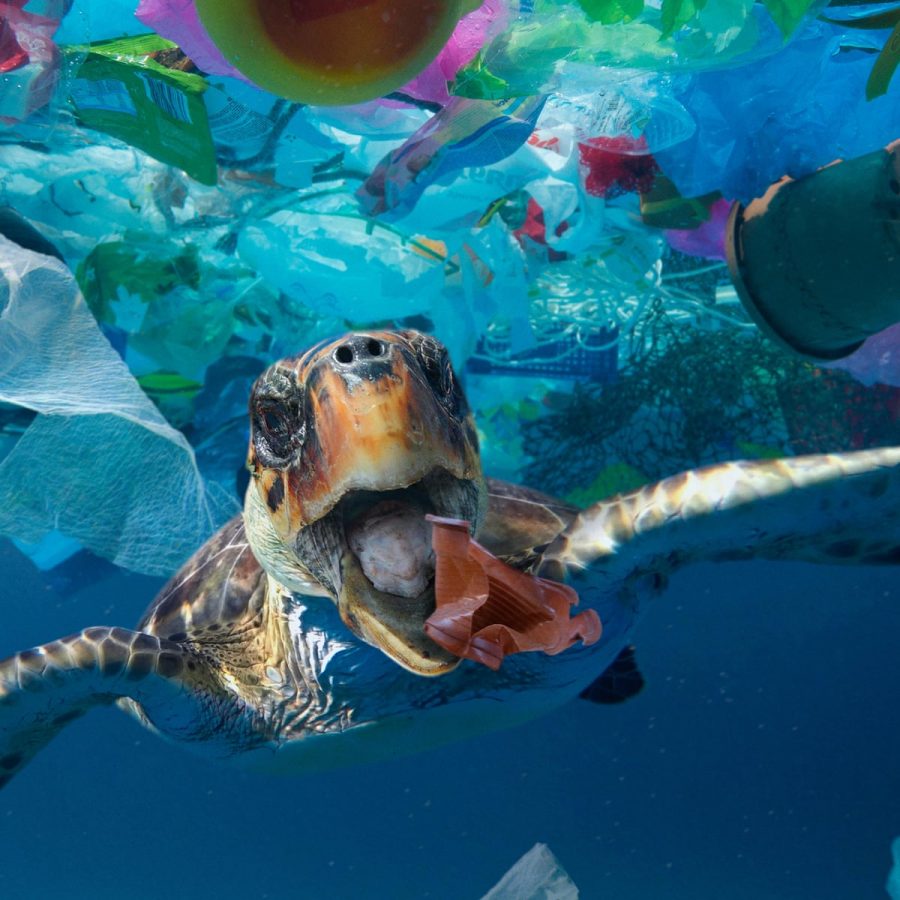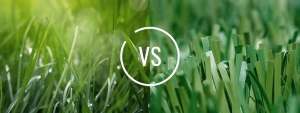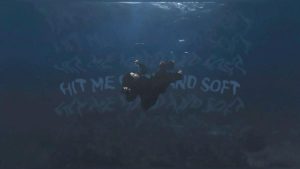How Plastic in the Ocean is Affecting Our Aquatic Life
A Sea Turtle swims through the ocean surrounded by plastic debris.
December 15, 2021
As small as it may seem, plastic is still extremely harmful to our oceans and is one of the most lethal things to aquatic animals on our beautiful planet.
Over 8 million tons of plastic are deposited into our oceans every single year according to iucn.org. Plastic gets in our ocean by wind, water, and littering.
Marine animals are frequently harmed by this littering. These animals may mistake plastic for fish or simply get entangled in it. This leads to suffocation and starving. Up to 1 million seabirds, fish, and other marine animals die because of this every single year according to pewtrusts.com.
Too many deaths of a certain species from plastic could lead to extinction or endangerment which could affect other animals because of the food chain. Biology teacher at North Allegheny, Dr. Rachael Morrow said this about that risk, “This would cause a major disruption to the food chains, especially if keystone species are impacted.”
Keystone species are organisms that play a huge role in an ecosystem because other species depend on them. If these keystone species are taken out of the ecosystem, it would cause drastic changes, and make it harder for those other species to survive. An example of these include sharks, sea, otters, algae, and dolphins.
Also, small bits of microplastics are responsible for the deaths. Microplastics are small particles of plastic that were broken down by sunlight, waves, and wind. According to zmescience.com, the fish eat the plastics and slowly pile up in the stomach. This makes the fish feel full so it does not eat which leads to it starving to death.
Plastics, once in the ocean, will for a very long time if it is not cleaned up after. According to cleanwater.com, 44 percent of all seabirds were affected, 86 percent of sea turtles, and 43 percent of all marine life. These numbers show how big of an impact plastic is in our ocean.
Not only do we need to protect larger organisms, we need to protect microorganisms because of their huge role in the ecosystem. When asked about why aquatic species are so vital to the ecosystem Dr. Morrow said, “Aquatic species are necessary for the aquatic food chains. Much of the oxygen produced on Earth comes from photosynthetic microorganisms found in the aquatic environment.”
Experts say change is needed immediately to save our marine life and our environment. There are many different ways that we can change that. According to oceanicsociety.org, we can refrain from using single-use plastics, recycle all of your plastics, spread the word, and support organizations addressing plastics in our oceans.

According to marineconservacy.org, Some of the most harmful plastics to marine life include, plastic straws, plastic fruit cups, plastic bags, and plastic bottles.
The Great Pacific Garbage Patch is a huge collection of trash that is between Hawaii and California. According to forbes.com, this patch is twice the size of Texas and three times the size of France. Furthermore, this patch contains more than 1.8 trillion pieces of plastic.
Plastic is not only affecting our aquatic life, but also humans. Plastic has been found in tap water, salt and more. Also, this affects tourism, because of the massive amounts of plastic on our beaches.
Plastic in our ocean is greatly affecting our aquatic life and can cause major issues in the future if it is not addressed.













Norris Myers • Dec 15, 2021 at 5:33 pm
Thanks for this important update on the great harm that is caused as careless humans discard all kinds of plastics. We all need to make a greater effort to change our destructive habits in this area…